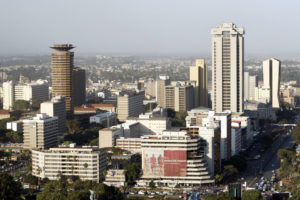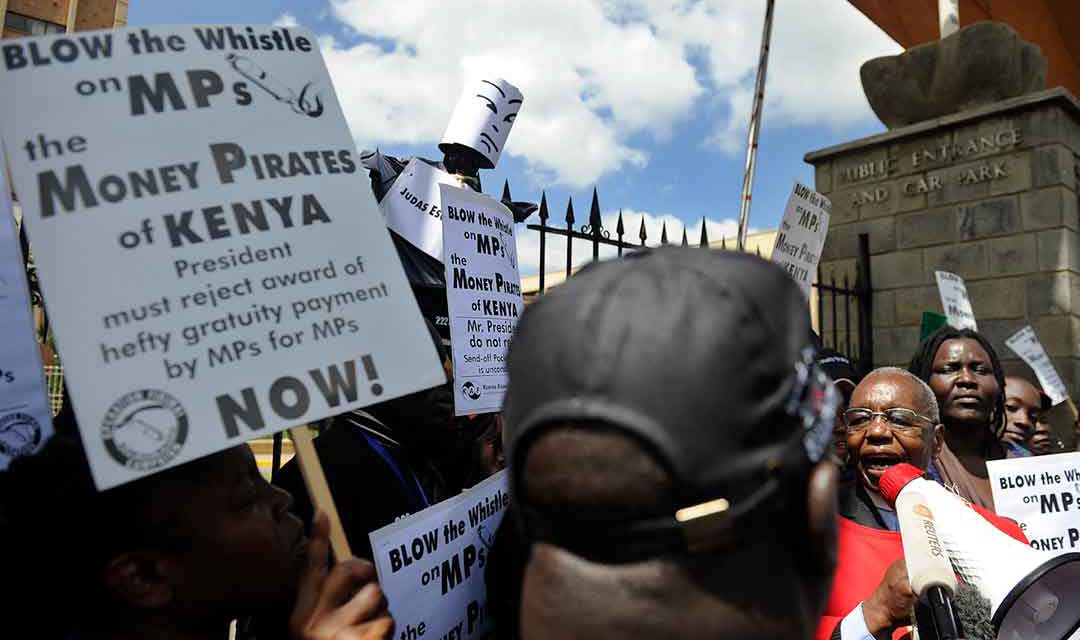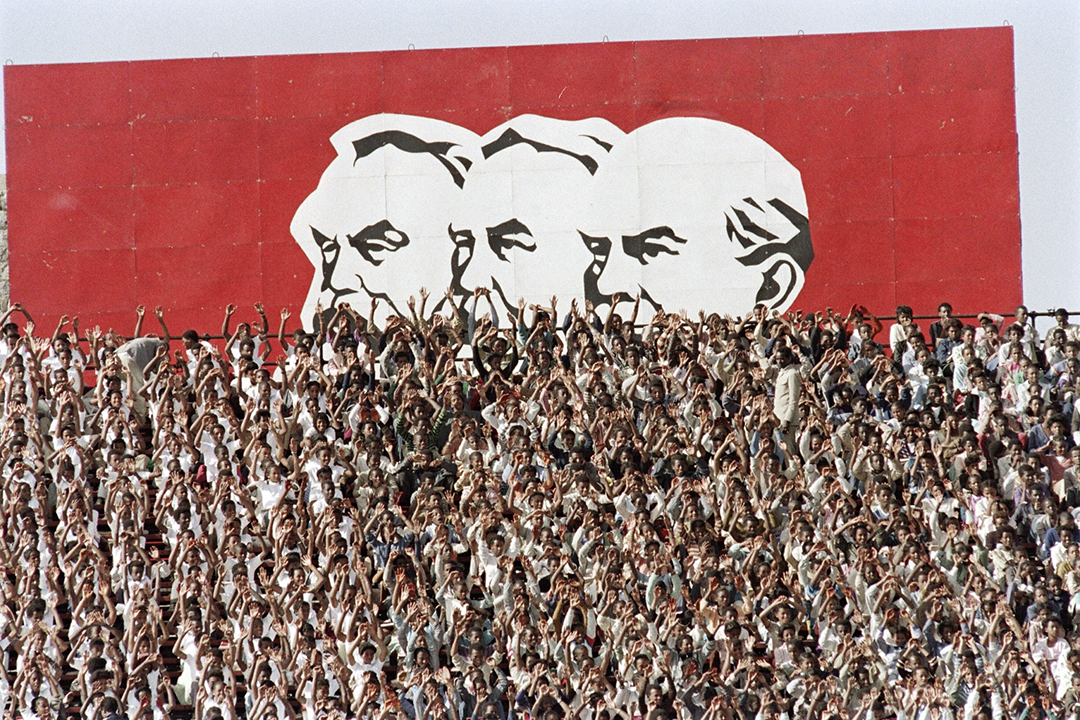
Investment highs and lows © Wikimedia
Since Kenya reintroduced a 5% capital gains tax (CGT) in January, its stock market has plummeted. The Nairobi Securities Exchange lost a massive 6.75% of its value in May when foreign investors withdrew 1.5 billion Kenyan shillings ($15m) from the market, according to Standard Investment Bank, a financial services firm based in Nairobi, the capital. The slump followed the reintroduction of the CGT that had been scrapped 30 years before. It could be argued that such losses hurt individual shareholders and also hinder companies’ chances of raising needed funds on the stock market, which ultimately depresses a country’s economic growth. Investors certainly appear to think so. In the week ending July 17, the Nairobi Securities Exchange recorded its highest weekly foreign investor outflow this year at $17m. The NSE 20-Share Index, which tracks the performance of the NSE’s 20 best performing companies, dropped 5.5% since the start of the year. Market capitalisation also dipped by 2.1% to $23 billion at the beginning of the year, a $487m loss, and even more during the months that followed, given confusion about responsibility for collecting the CGT.
The government had scrapped a flat 7.5% CGT in 1985, but this January reintroduced a fixed 5% tax that applies to any gains made from the sale of property and shares and does not vary with the length of ownership. Aly-Khan Satchu, an independent financial analyst in Nairobi, blames the new levy for the drop in market activities. He claims the tax discourages investors, who expect it to result in diminished returns. Some stock analysts have identified CGT as one of the most significant factors blocking the growth of Africa’s equities, debt and real estate sectors. This may explain why the Kenyan parliament suspended CGT in 1985 “to spur growth in the real estate market and deepen local participation in the capital markets”, says Eric Munywoki, a research analyst at Old Mutual Securities. The 7.5% CGT was introduced in 1975, and hurt activities at the Nairobi exchange as share prices dropped and listed Ugandan companies left the stock market, says Luke Mulunda, the managing editor of Business Today, a business and economics website. “After the CGT suspension in June 1985, more companies, both local and international, sought to be listed at the NSE,” Mr Mulunda adds.
“More people also got interested in buying shares at the stock market, a clear indication that CGT suspension had catalysed their appetite for stocks.” Warning signs lit up when the reintroduction of the CGT was proposed in the June 2013 budget. Stock prices at the NSE went south and investors’ wealth slumped because of fears that the new tax would erode their profits. The Kenyan shilling, according to Mr Satchu, also plunged over concerns that the effects on the NSE would trickle down to the entire economy. So why has the Kenyan government reintroduced CGT? The primary reason seems to be the claim that it will earn the Kenya Revenue Authority (KRA) about 7.5 billion shillings ($75m) a year — a figure based on previous Kenya NSE transactions, according to the KRA commissioner, John Njiraini. Many analysts argue that the 5% duty will undermine Kenya’s bid to become a regional business hub because it will deter foreign investors. People interested in such markets will either refrain from buying Kenyan shares or look around for places where they can get higher returns on their investments, says Nikhil Hira, a tax partner at Deloitte Kenya.
Others say they understand the government’s need to boost its revenue, but argue the tax rate should reflect the time investors keep their shares. “Given the need to grow our economy in the long term, the long-term capital gains need to be taxed at a lower rate than short-term gains to provide more incentive to invest in firms that build the economy, rather than trying to make quick profits by speculating on stocks,” according to an October 2014 paper by Old Mutual Securities, a trading firm. Mr Njiraini, the KRA commissioner, disagrees. He argues that the new CGT was lowered from the previous rate of 7.5% to allay this concern. “This is among the lowest rates in Africa,” he says. (According to professional services firm KPMG, CGT rates vary from a high of 41% collected in South Africa to 10% charged in Nigeria.) “Therefore the worry that CGT might discourage investment in the stock market is unsubstantiated.” Any levy on profits will discourage investment, claims the Kenya Association of Stockbrokers and Investment Banks (KASIB). Instead of a CGT on the stock market, Kenya should have imposed a transaction levy on turnover, says Willie Njoroge, the association’s CEO.
The government has recently indicated it might impose a 0.3% levy on the sale of shares if CGT fails to work. Unlike a flat CGT rate of 5% on shares sold, the 0.3% transaction levy would be a withholding tax determined by the value of share transactions. The percentage would be deducted upon the sale of shares and remitted to the Kenya Revenue Authority by stockbrokers. In April the revenue service asked stockbrokers and investment banks to submit records on monies collected from trades since January. But KASIB members have not paid any CGT so far, mostly because they have challenged the levy in the high court, a case which is still pending, Mr Njoroge says. And unlike the pre-1985 period, when the revenue service collected directly from shareholders, brokers now must collect and remit CGT directly to the KRA. The dealers object to this burdensome task. “This is not the stockbrokers’ mandate but that of the KRA,” says Morris Aron, an economics consultant in Nairobi. “This is what is impeding the smooth rollout of CGT in Kenya.” On the positive side, the reintroduction of CGT will promote equity and fairness in Kenya’s tax system because it will target the wealthy, according to finance and justice groups.
“For a long time, Kenya’s tax system has put a burden on the poor and the rich, without considering their abilities to pay,” says Alvin Mosioma of Tax Justice Network-Africa, a lobby group. “So CGT will to some degree, bring the fairness our tax system has been lacking.” The levy broadens the country’s revenue base to finance Kenya’s rising budget, and it “is an important way of closing the gap between the poor and the rich without imposing a greater burden on the less fortunate in society”, says Henry Rotich, Kenya’s treasury secretary. Its long-term effect will be the thriving of Kenya’s economy, he argues. “There is no doubt that teething problems will arise with the introduction of the CGT,” Mr Rotich said last year, before the tax was reactivated. “It is normal and it was expected. Ultimately, we will not be hearing of income inequalities or depression in the stock market as the government invests heavily in infrastructure, and new and affordable energy sources to attract foreign investments.”
Mark Kapchanga is a senior economics writer for the Standard newspaper
in Kenya and a columnist for the Global Times, an English-language newspaper
in China. He is pursuing a PhD in investigative business journalism at the
University of Nairobi.












